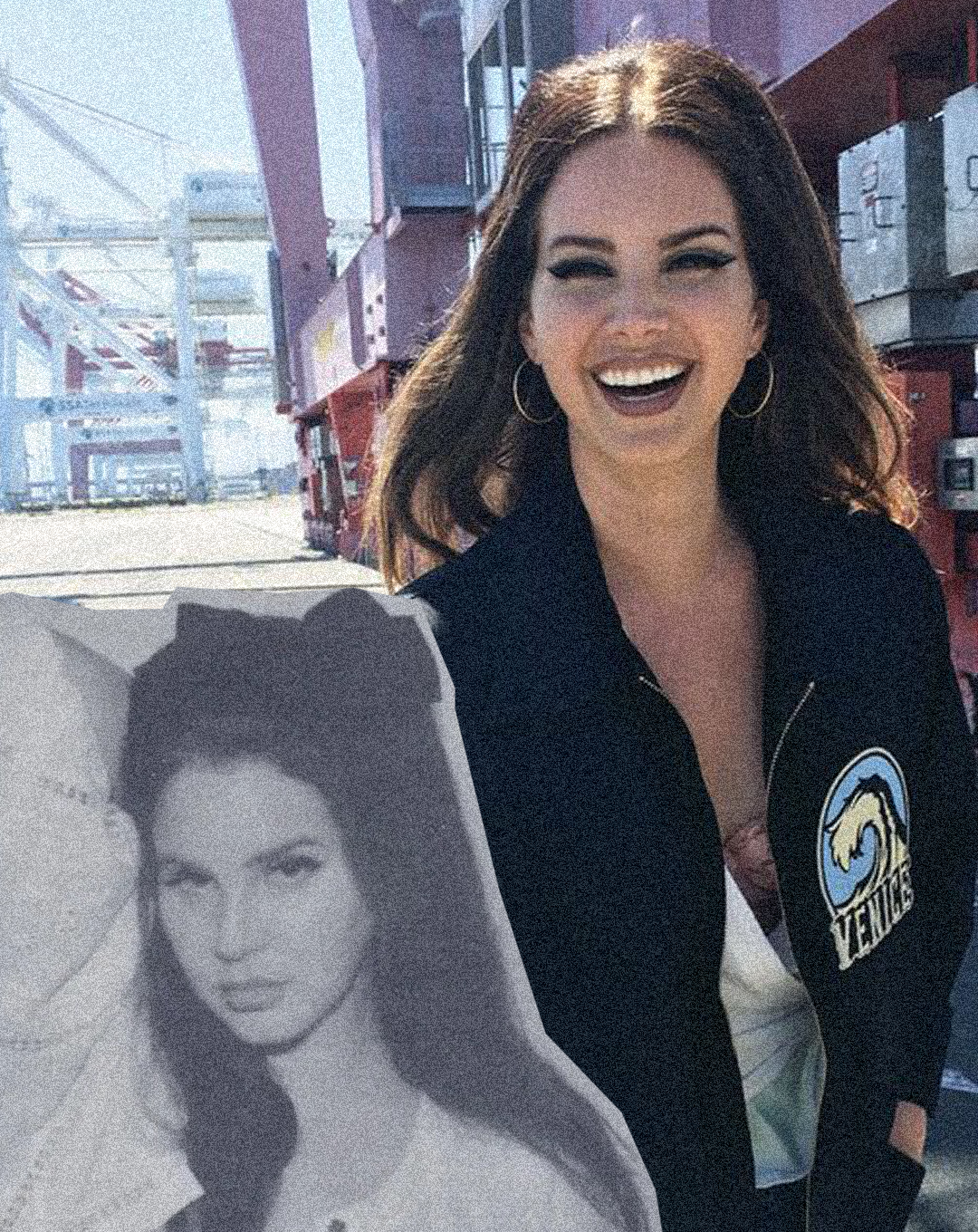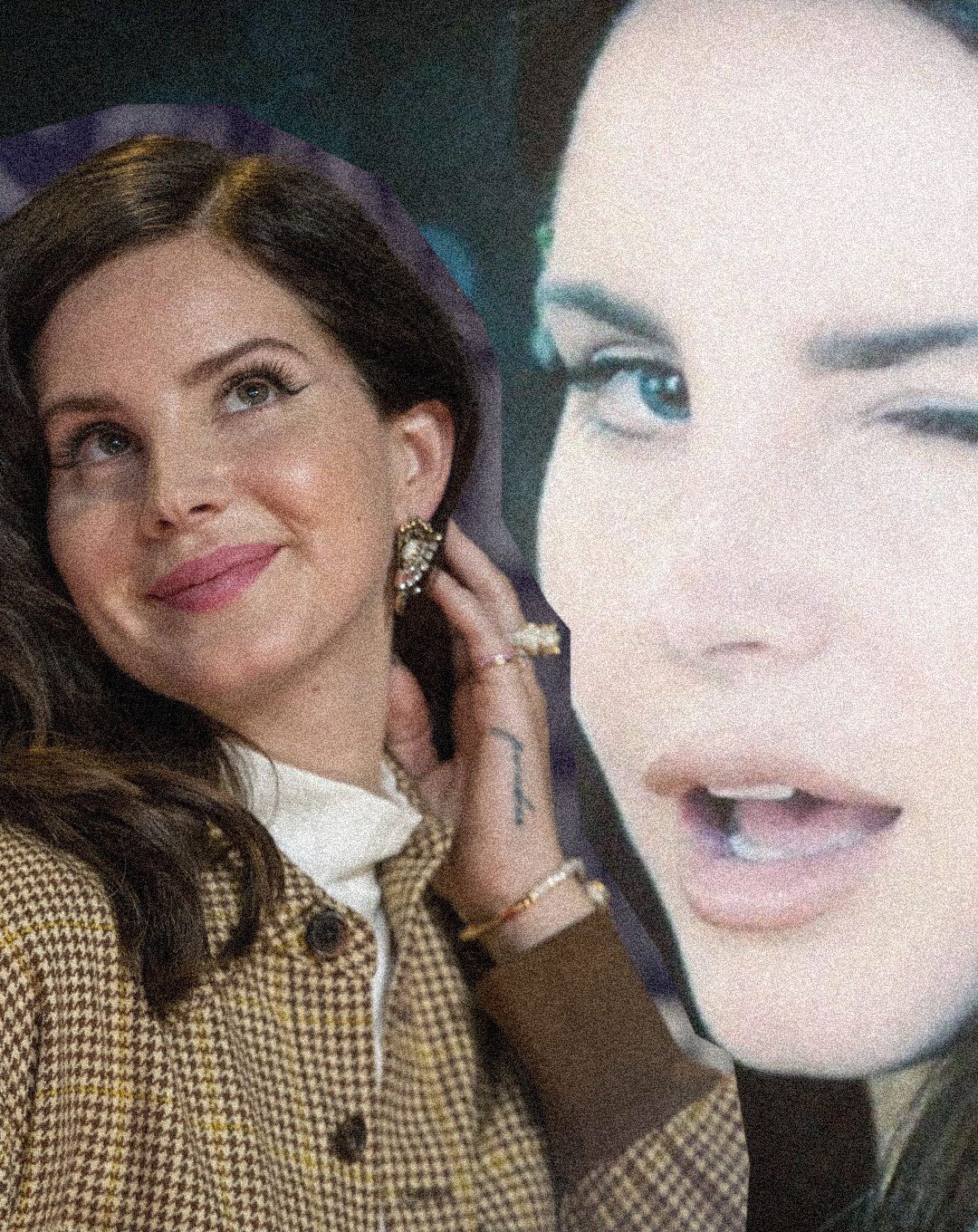The Cult of Lana Del Rey
Like everyone else, I remember exactly where I was and what it felt like to hear Lana Del Rey’s 2012 album Born to Die for the first time. I was away with my best friend at the time, who had recently got her first boyfriend which to any teenage girl in the early 2010s, was both the most important thing in the whole world and the only thing that made you of any worth: “They say that the world was built for two”. Boyfriend-less myself and watching her fall away from me, I lived vicariously through the album’s portrayal of the live-fast die-young, All-American relationship as I experienced feeling truly alone for the first time. I obsessively watched the National Anthem music video over and over, in love with Del Rey as both Marilyn Monroe and Jackie Kennedy as well as A$AP Rocky’s John F. Kennedy, imagining what it would be like to be the coolest.
Ten years on, I’m now twenty-one, and bringing up her latest single A&W to anyone that will listen. I eagerly await Lana Del Rey’s ninth studio album, Did You Know That There’s a Tunnel Under Ocean Blvd, due for release imminently. As the album release has approached, I’ve been reflecting upon the role she has played not only in my life over the last decade, but in shaping the cultural landscape of the 2010s. I’ve wondered why I have always salivated at the prospect of a new record from her. What is it about Del Rey that has afforded her such a prolific, successful, and influential career, as well as such a dedicated following?
During the first half of the 2010s, Lana Del Rey as a person and as a lifestyle was inescapable online, particularly on Tumblr, and Del Rey was crucial to the development of Internet aesthetics and trends at the time. Images of the singer holding cigarettes and crowned by flowers saturated my feed, often accompanied by her lyrics: “He knows me, every inch of my tar-black soul”, “Come and take a walk on the wild side, let me kiss you hard in the pouring rain”. Her aesthetic and the portrayal of her lifestyle was enigmatic enough to draw attention, to make girls long to be her, as well as being relatable enough so that they felt like they could. Writer Rosie Swash said in her 2011 Observer interview with Lana that “she raises far more questions than she actually answers”. Lana was the Internet’s resident cool girl, shrouded in nothing but mystery and the American flag.
As we entered into the latter half of the 2010s, singing about needing someone “to come here and save me” and being a self-proclaimed “sad girl” was out and female empowerment was finally in! Because of it, Del Rey was heavily criticised for lyrics such as “I’m nothing, without you” and “He hurt me, but it felt like true love” - in particular the way in which these words romanticise unhealthy relationships. Yet her early music perfectly articulates that feeling you have when you’re young, your brain as malleable as playdough: That you are completely untouchable. That they just don’t get it, because they don’t know them like you do. That being unhappy with them is a million times better than being without them. The issues that Del Rey sings about are, unfortunately, ones that many young women can relate to. She isn’t responsible for women being treated poorly in relationships; she is just addressing the matter as well as talking about her own experiences.
As her career has grown over the last decade so have we alongside her. We found immense consolation in the opening line of her 2019 album Norman Fucking Rockwell!’s titular track: “Goddamn man child”. On this album, and especially this track, Del Rey offers a new disillusioned perspective, one that reflects upon how, perhaps pathetic, these men were whom several years ago she was idolising. This is also a key part of the story told in her latest single A&W which references that character of Jim/Jimmy, a love interest who featured in Del Rey’s early music and was referred to as her “cult leader” who told her that “loving him was never enough” on the track Ultraviolence. On A&W however, Del Rey sings of him “your mom called, I told her, you’re fucking up big time”, clearly illustrating this shift in her attitude to love and those that she loves, in line with a cultural shift away from romantic interests by younger generations of women.
From the beginning, Del Rey’s music has offered a candidness about the all-consuming nature of relationships when you are young, for better and for worse. Her articulation of the general chaos of the feminine experience is fundamental to why her music resonates so much. It is not about being inspired by her music to make bad decisions, it’s about the relief and comfort of not feeling alone when you inevitably make them.
“Lana Del Rey is everywhere; she is in the art that we consume both on and offline, in the music of the other artists we enjoy and, most of all, she is woven into the years we spent growing up, falling in and out of love for the first, second, third time.”
Moreover, it’s not just her status as a god to girls like me who grew up on Tumblr in the early 2010s that has ensured the success she has achieved. She has been recognised by Variety as “one of the most influential singer-songwriters of the twenty-first century”. Del Rey has contributed to several acclaimed soundtracks such as Baz Luhrmann’s The Great Gatsby (2013) and Sam Levinson’s Euphoria (2019). In 2018 Dave performed a cover of Born to Die for BBC’s Live Lounge. A$AP Rocky and The Weeknd have also always been vocal about their love for Del Rey, with Rocky calling her his “dream girl” in a 2012 interview with Billboard and The Weeknd even saying “she is the girl in my music”. Countless other critically-acclaimed artists from Bruce Springsteen (“a big favourite of mine, the lovely Lana Del Rey”) to Stevie Nicks (“working on [her] song changed me forever”) have all paid tribute to her talent, her influence on their own music, and her lyrical prowess. This endless stream of praise and recognition prove that there is more to Lana Del Rey than aesthetic; that she’s just objectively very good.
I am so looking forward to her new album and the way it will undoubtedly act as the soundtrack to the next chapter of my life. I argue with confidence that she is the voice of a generation and that’s why I feel Lana Del Rey has become so much more than Elizabeth Grant’s stage name. Lana Del Rey is everywhere; she is in the art that we consume both on and offline, in the music of the other artists we enjoy and, most of all, she is woven into the years we spent growing up, falling in and out of love for the first, second, third time.
Words: Becca Child


